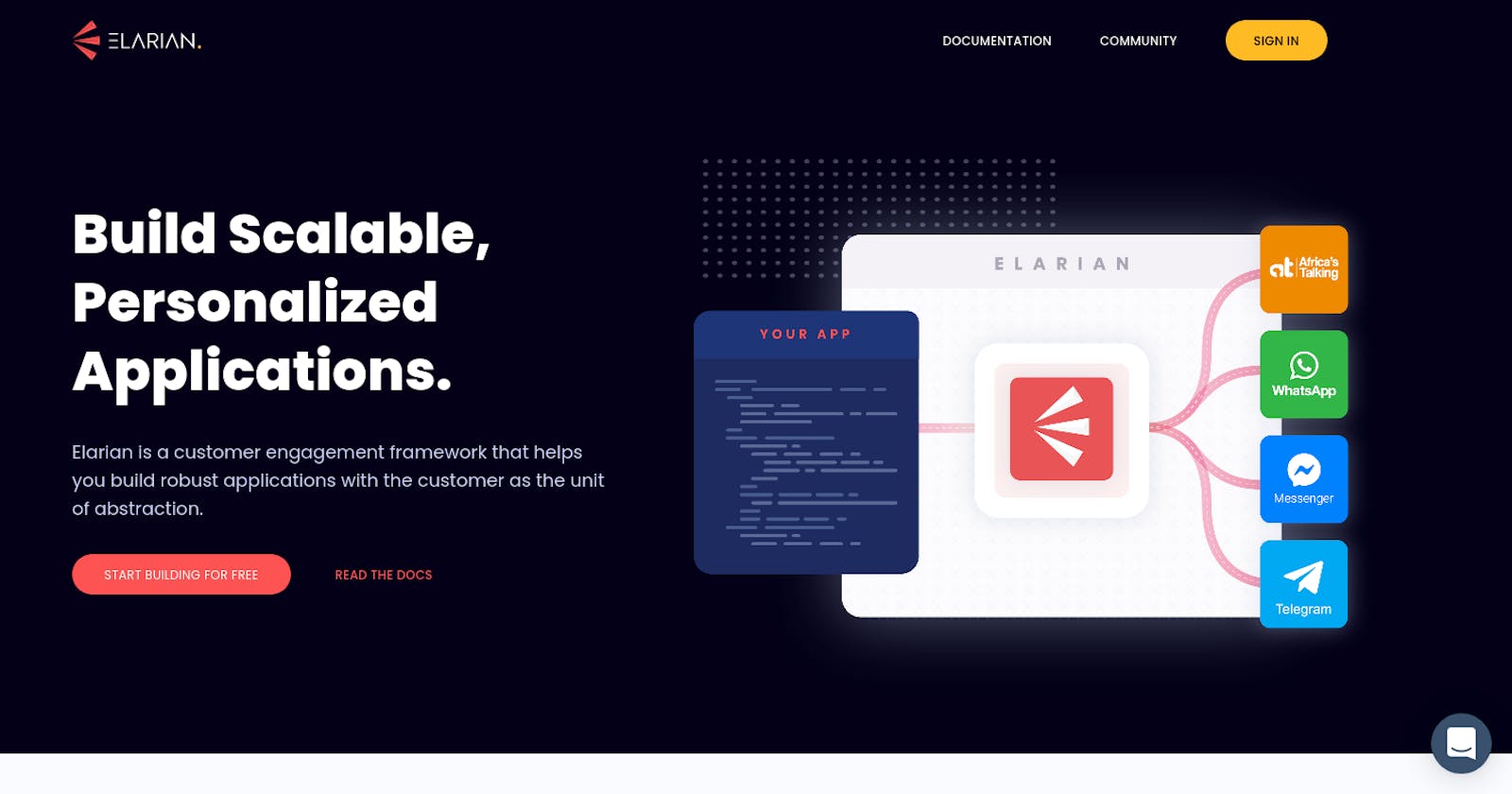Getting Started With Elarian Bulk SMS API for Node.js Developers
Elarian is a customer engagement framework that helps you build robust applications with the customer as the unit of abstraction.
By Ian Githungo
Elarian provides infrastructure for building reactive, scalable applications fast. At its core, Elarian is a customer data and automation platform, even as you perform basic actions such as sending messages or handling payments; this data encompasses communications, payments, and activities generated from sources such as websites and mobile apps.
Elarian's goal is to help developers build scalable applications without worrying about the underlying infrastructures.
Head to their website for more information about Elarian
Services provided by Elarian include:
Messaging: Engage customers across multiple platforms using a unified platform such as:
WhatsApp
SMS
Telegram
Facebook Messenger
Payments: Seamlessly send, receive, and organize payments across multiple platforms
Customer: Access Unified customer data in realtime to personalize engagements
- Head to the Elarian dashboard and create an account
- Create an Organization dashboard
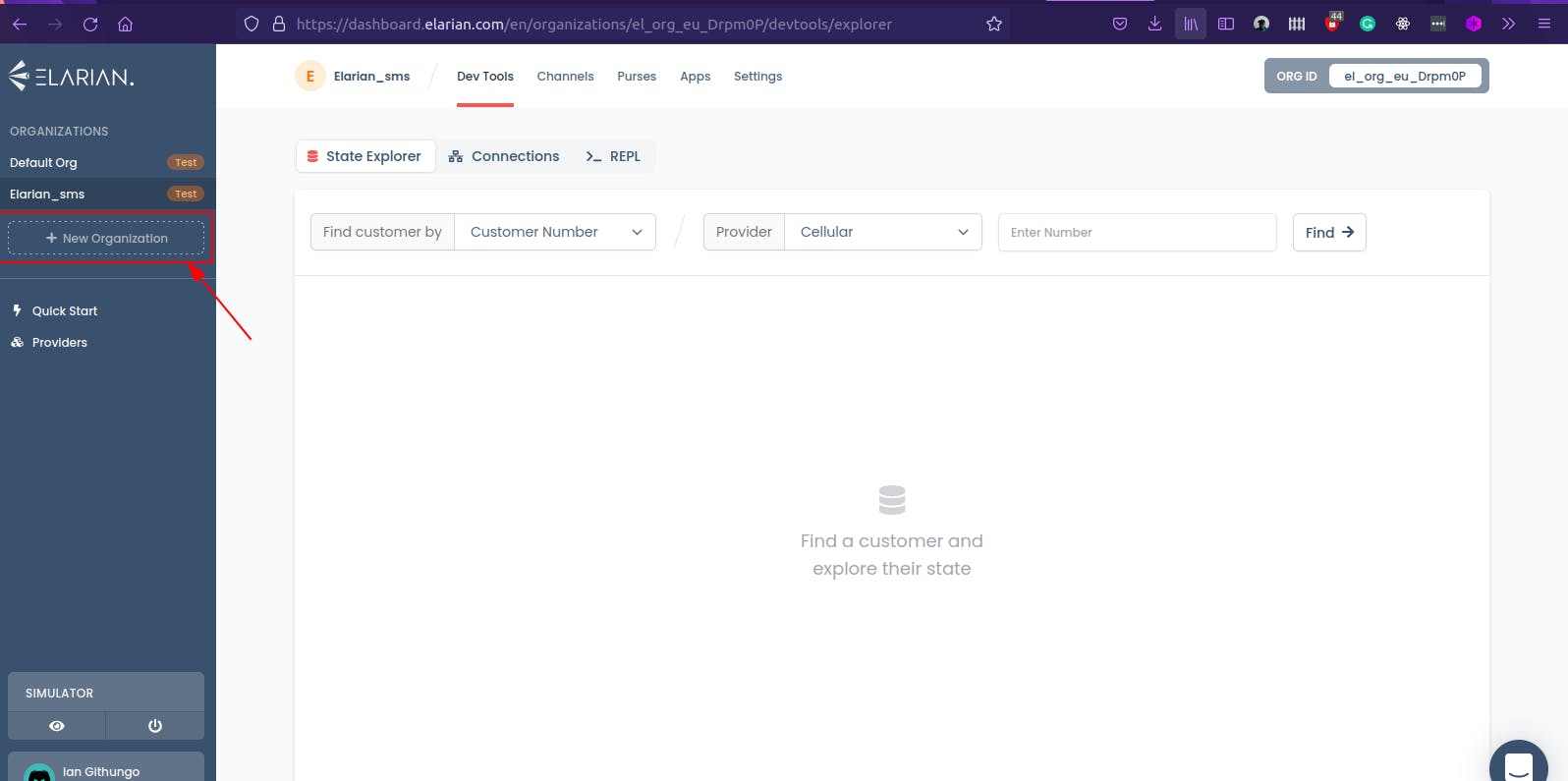
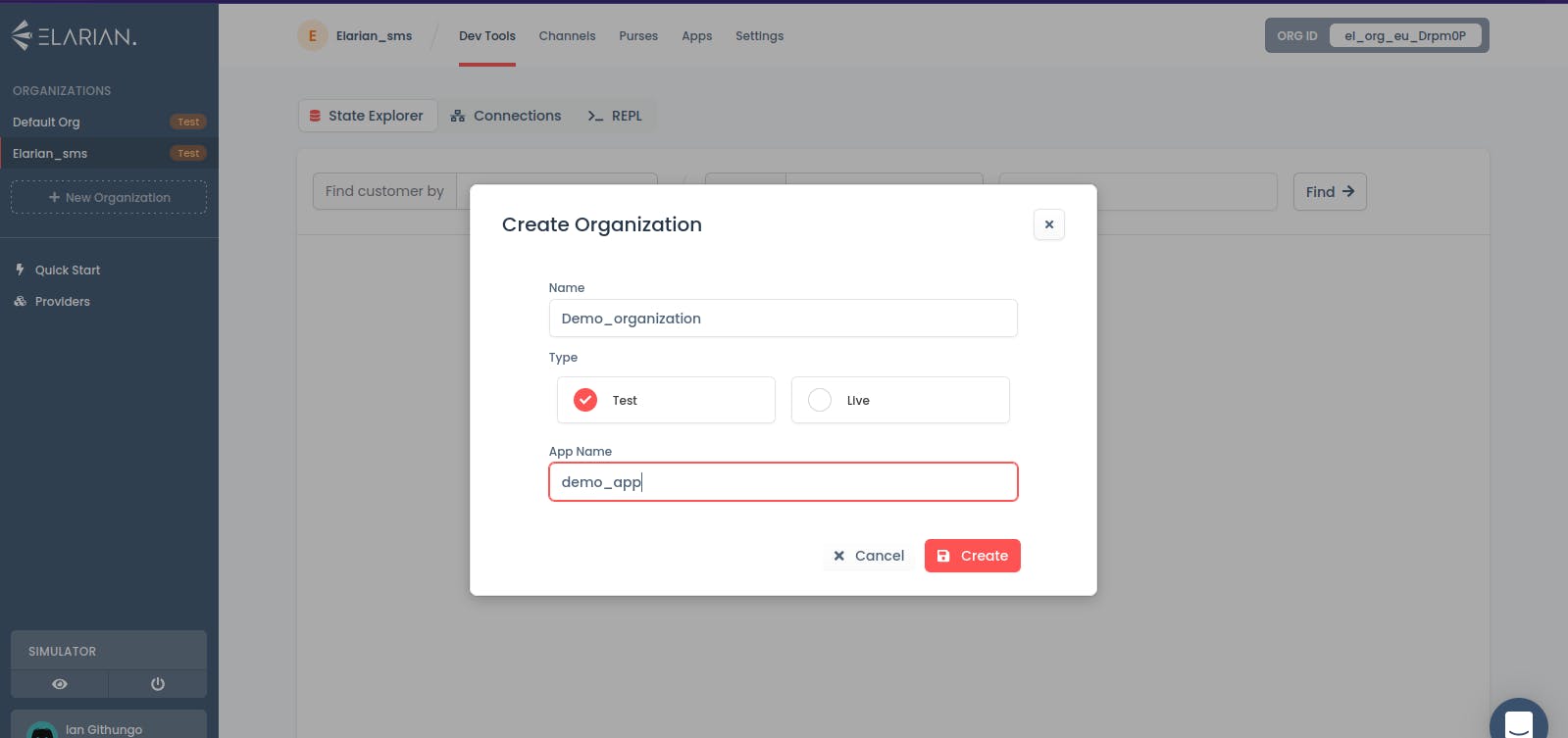
Head to the settings page and generate your API key. settings
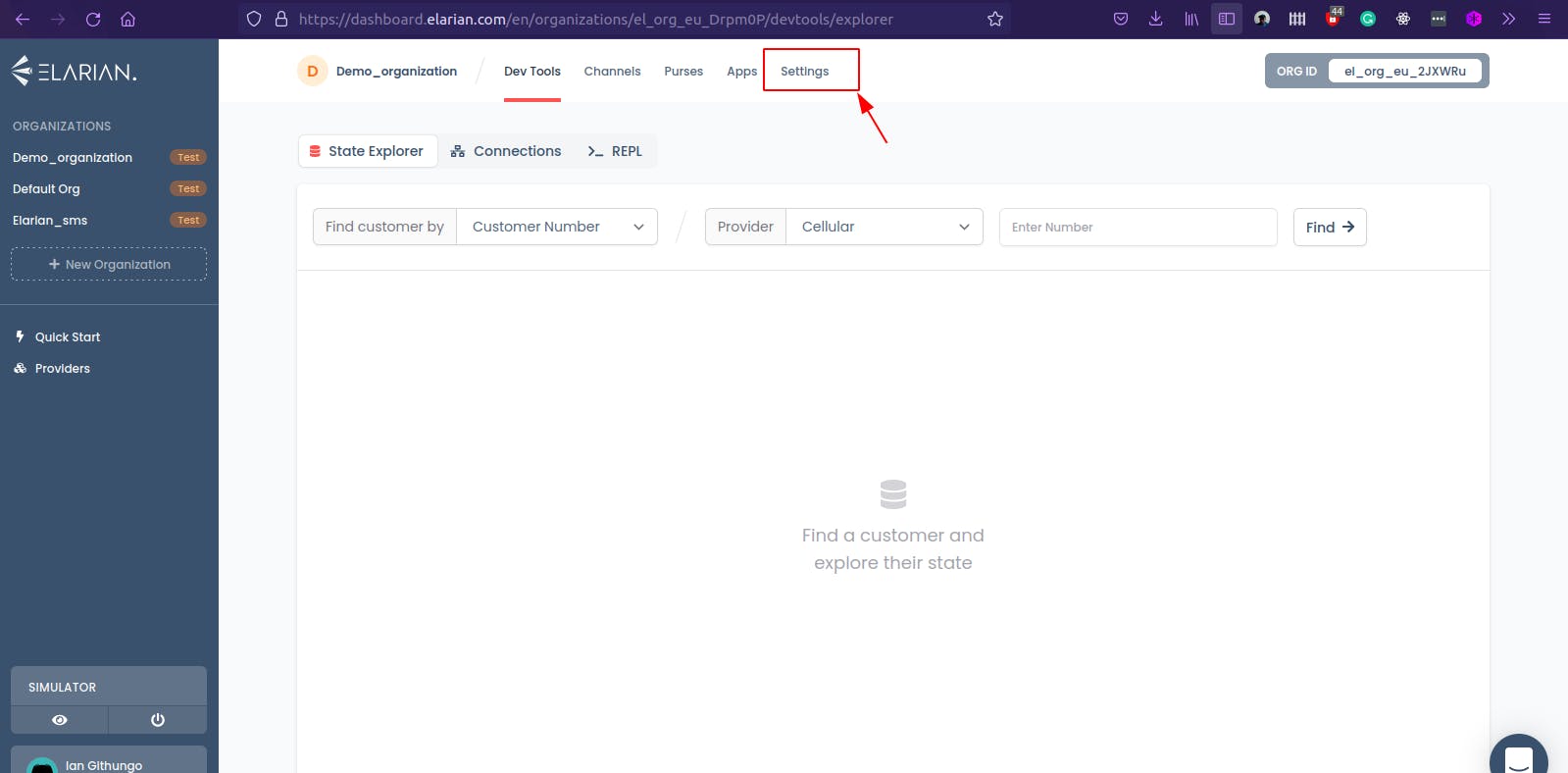
Click the Send Security Code Button. A code will be sent to the email you used to sign up for your account.
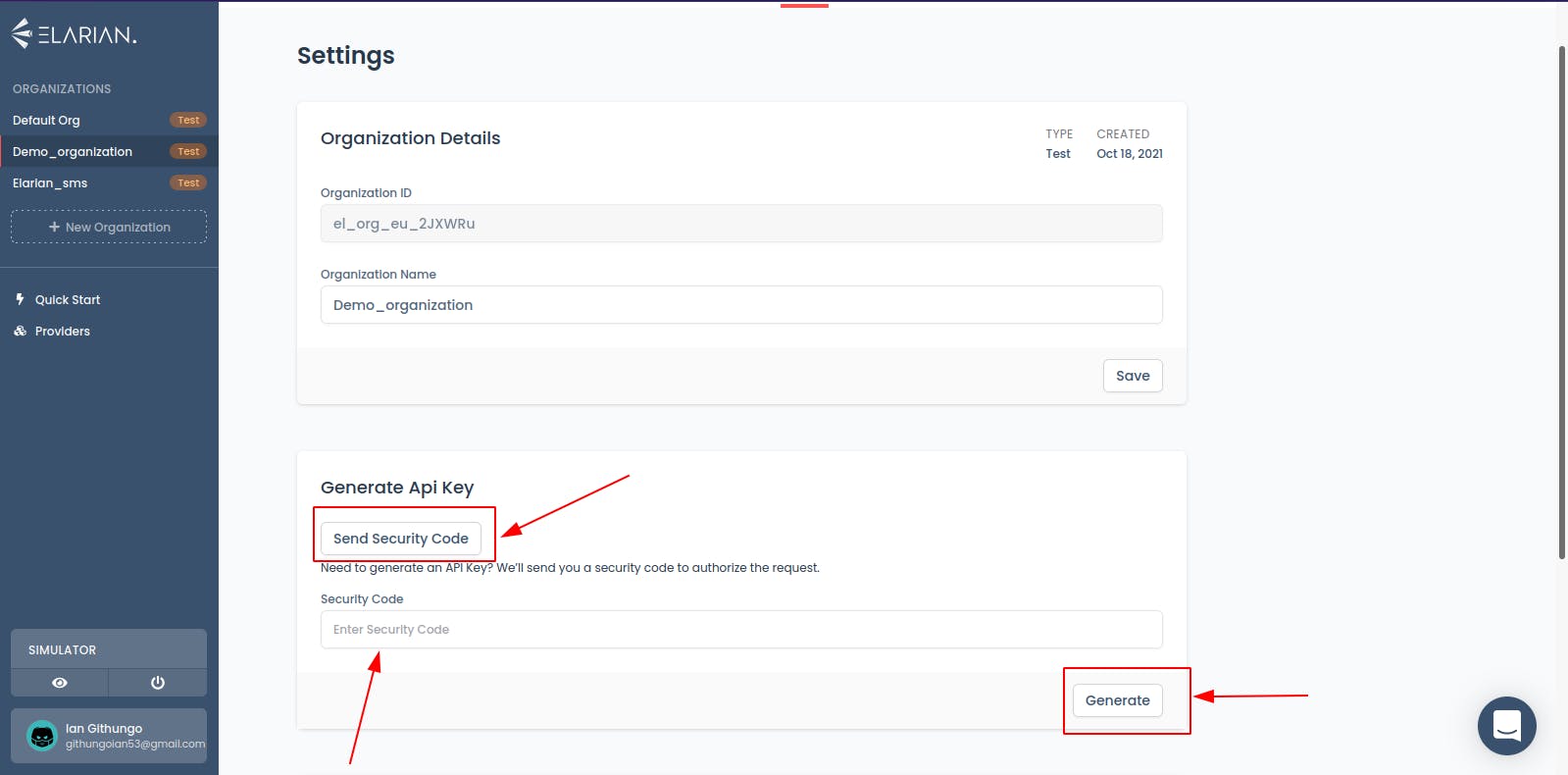
Enter the security code and click the generate button.
Ensure that you copy the API key to the clipboard before leaving the settings page
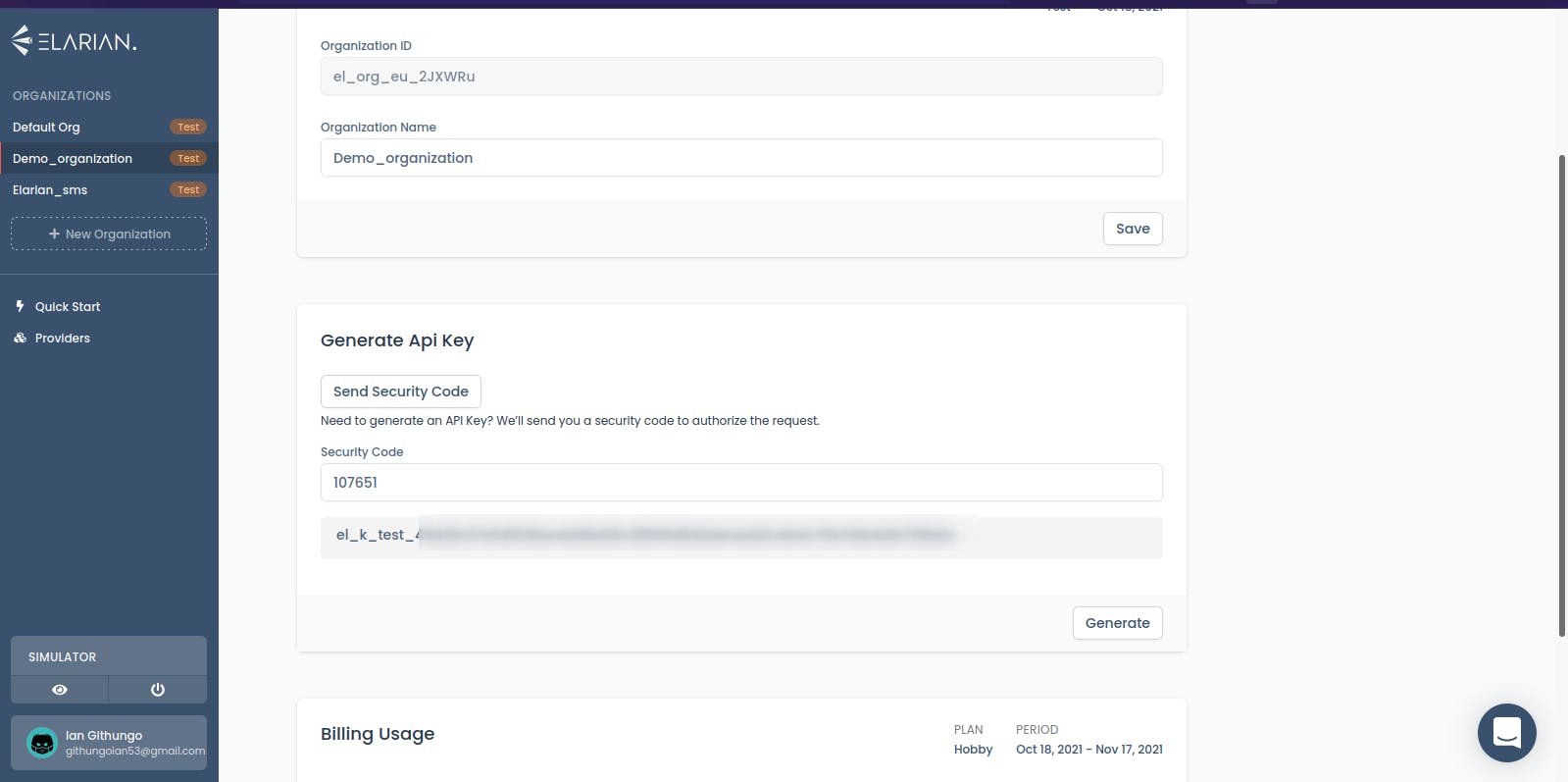
- Create a channel
Head to the channels tab to create a new channel.
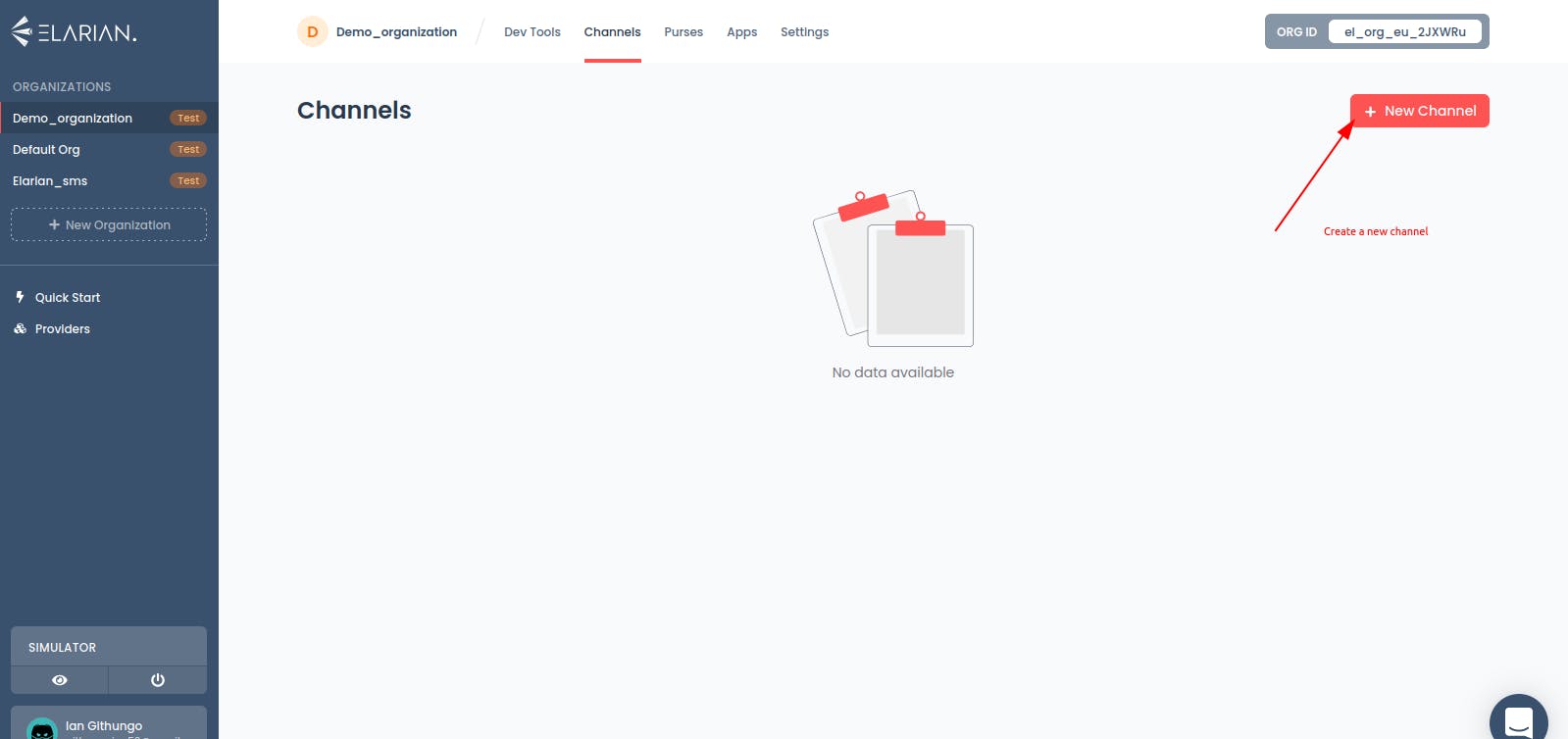
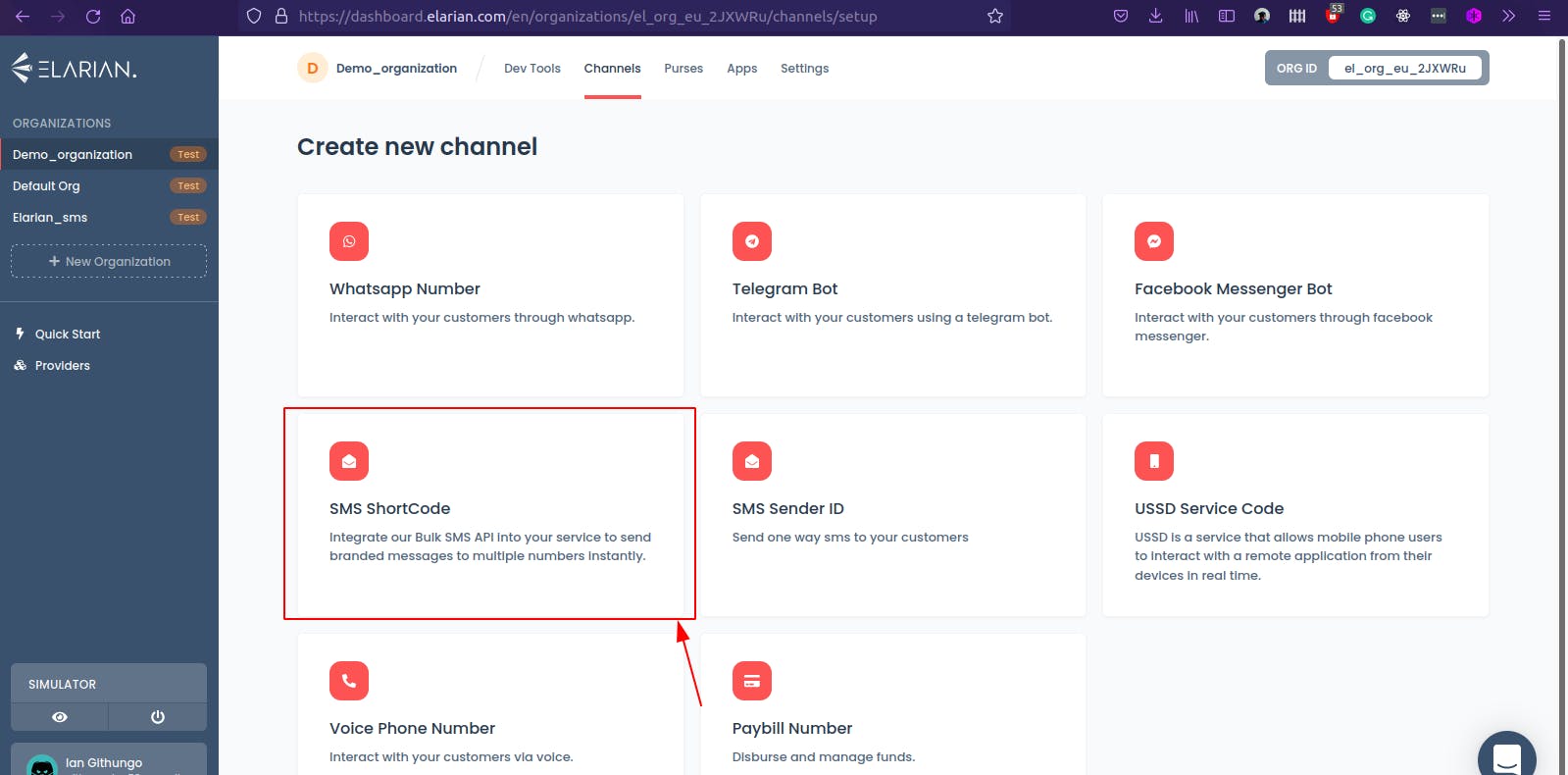
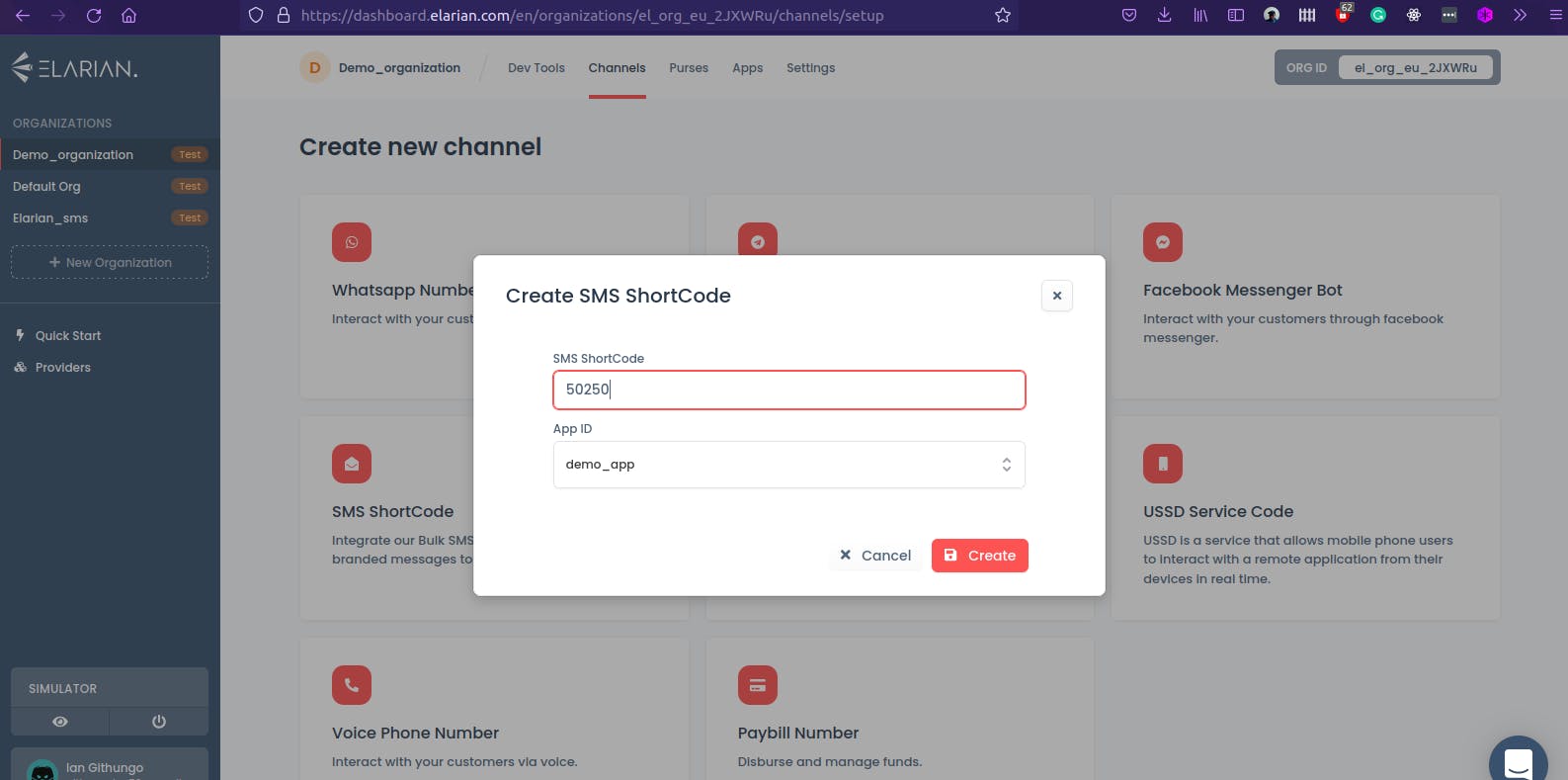
- Grab the appId,orgId
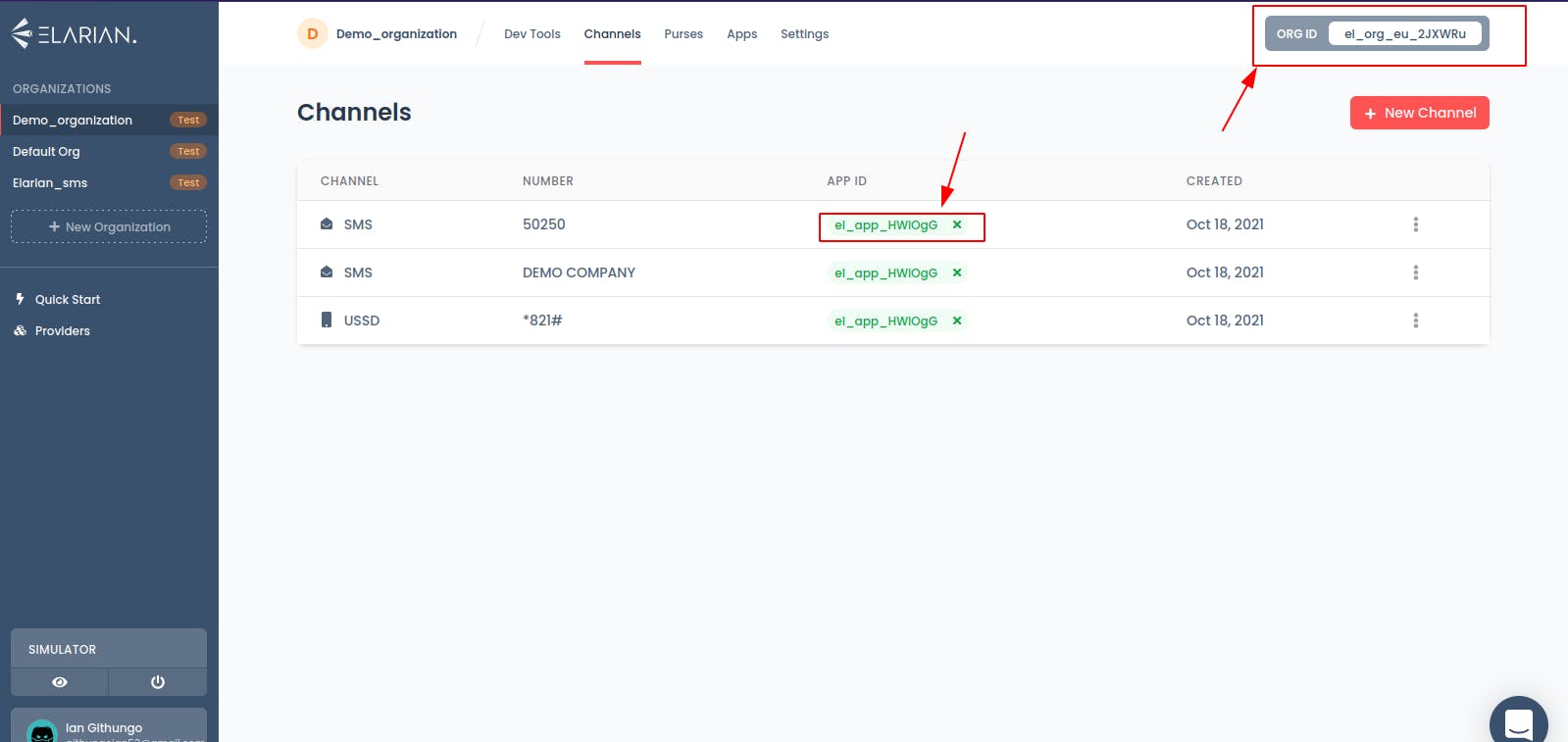
also don't forget the apiKey that you copied on the clipboard.
Initialize a node.js project with the following command npm init and install the following npm packages with
npm installdotenv
elarian
Paste the credentials into the .env config file
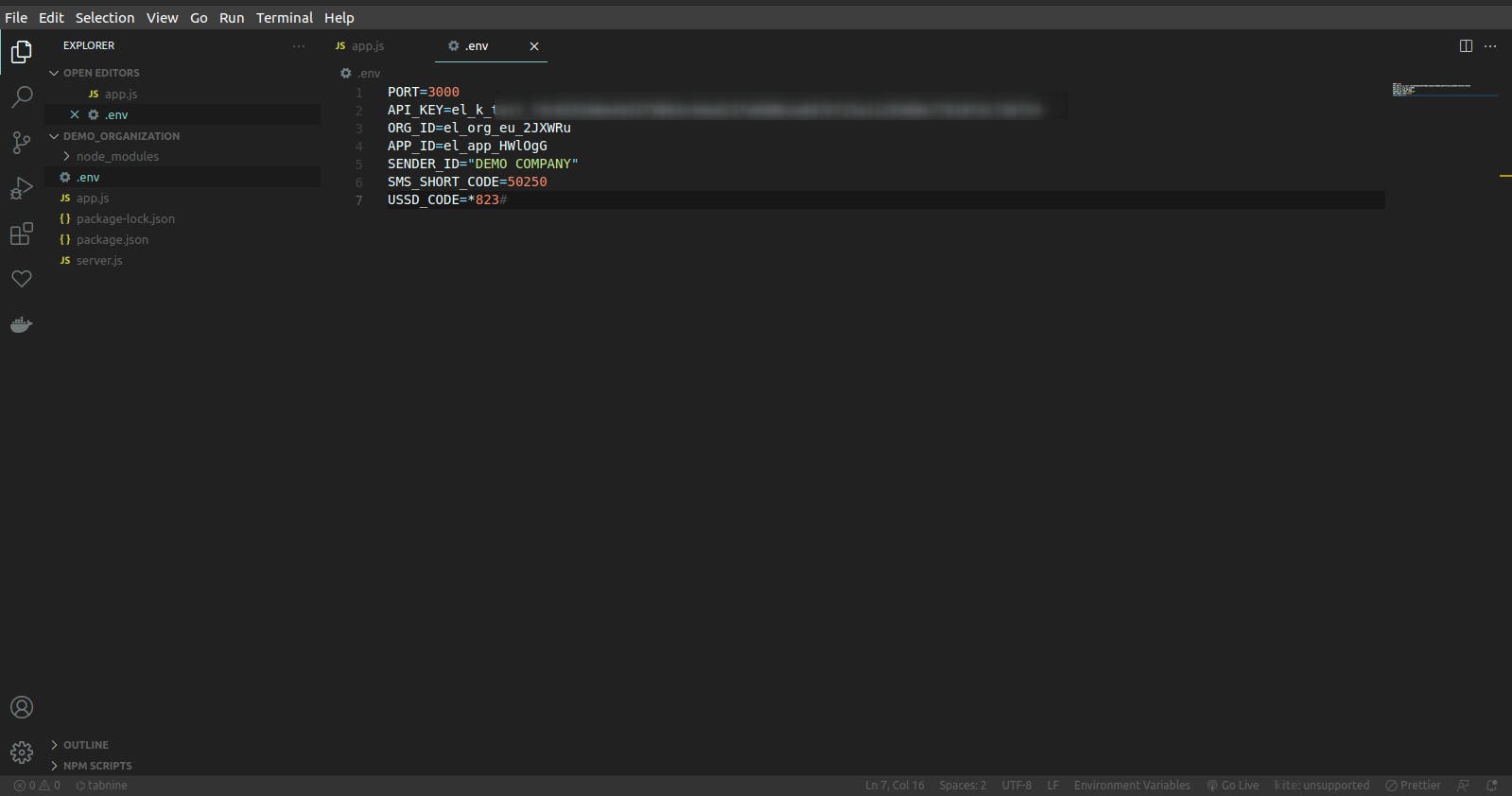
app.js
const dotenv = require("dotenv");
dotenv.config({ path: "./.env" });
const { Elarian } = require("elarian");
const client = new Elarian({
appId: process.env.APP_ID,
orgId: process.env.ORG_ID,
appId: process.env.APP_ID,
});
client
.on("error", () => {
console.log("App failed to connect");
})
.on("connected", async () => {
console.log("App connected successfully");
const customer = new client.Customer({
number: "+2547********", // you can enter your number here
provider: "cellular",
});
const reponse = await customer.sendMessage(
{
number: process.env.SMS_SHORT_CODE, // you can either use the SMS_SHORT_CODE or the ALPHANUMERIC here
channel: "sms",
},
{
body: {
text: "Thank you for chosing Elarian",
},
}
);
console.log(response);
})
.connect();
You can also add a start script in the package.json file.
{
"name": "elarian_sms_app",
"version": "1.0.0",
"description": "",
"main": "app.js",
"scripts": {
"start": "node app.js"
},
"author": "",
"license": "ISC",
"dependencies": {
"dotenv": "^10.0.0",
"elarian": "^0.2.16"
}
}
Run the SMS app with:
npm run start
You can now check out the Elarian emulator on the dashboard.
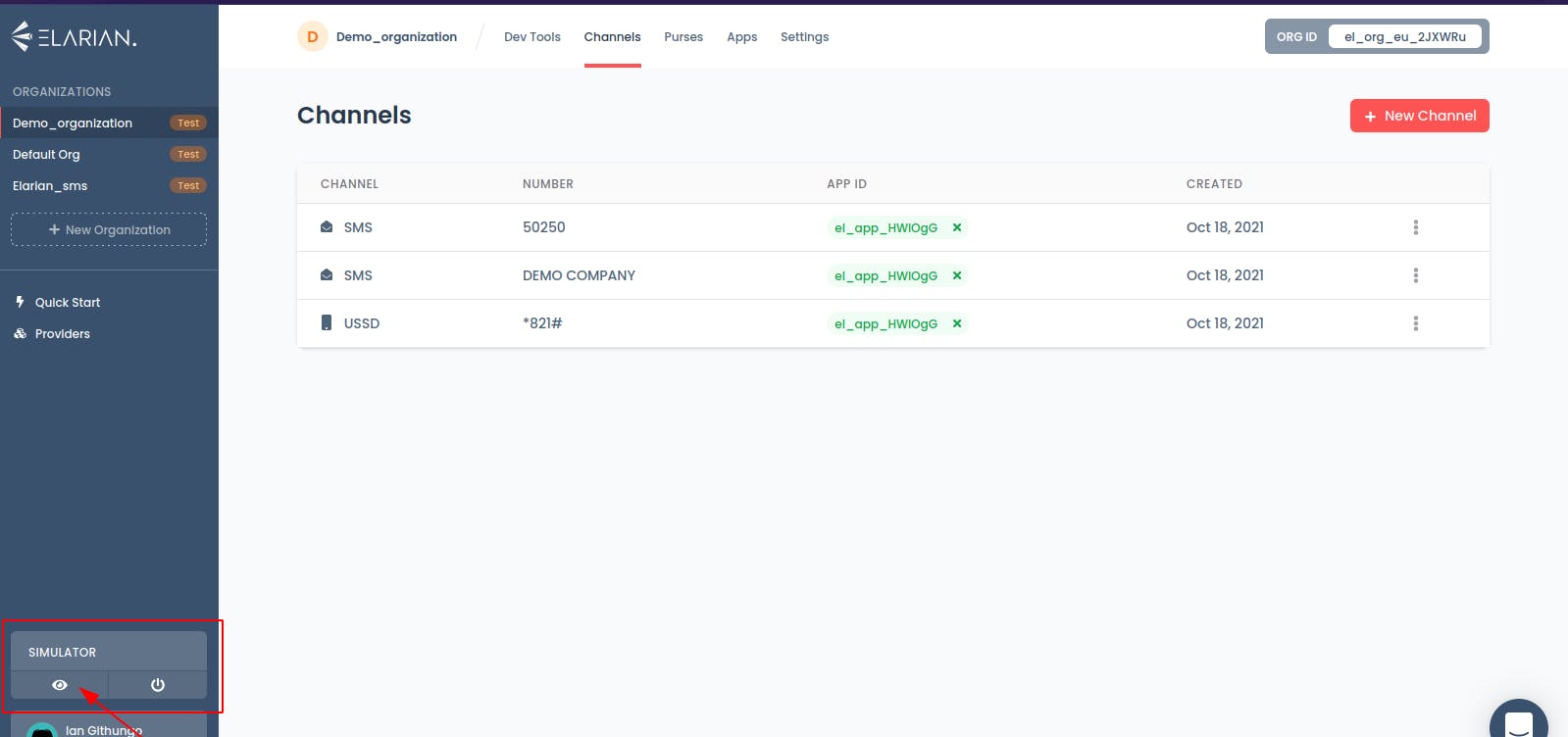
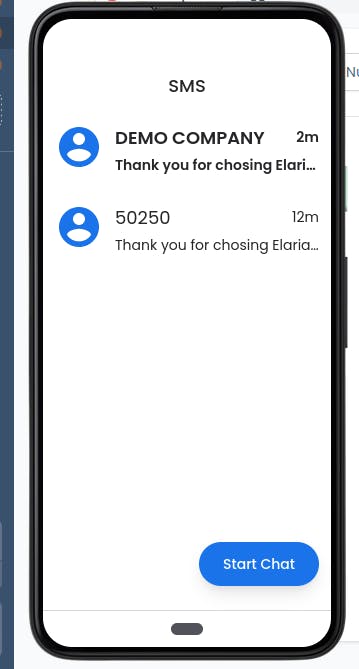
If you have been able to reach this section and can view the message on the emulator great job! 🙂
You have successfully integrated Elarian Bulk SMS API to your Node.js Application.
For an even thorough understanding of the API, please check out the Elarian documentation.
In the next tutorial, we’ll create a USSD application using Elarian, so stay tuned for more amazing informative content.

